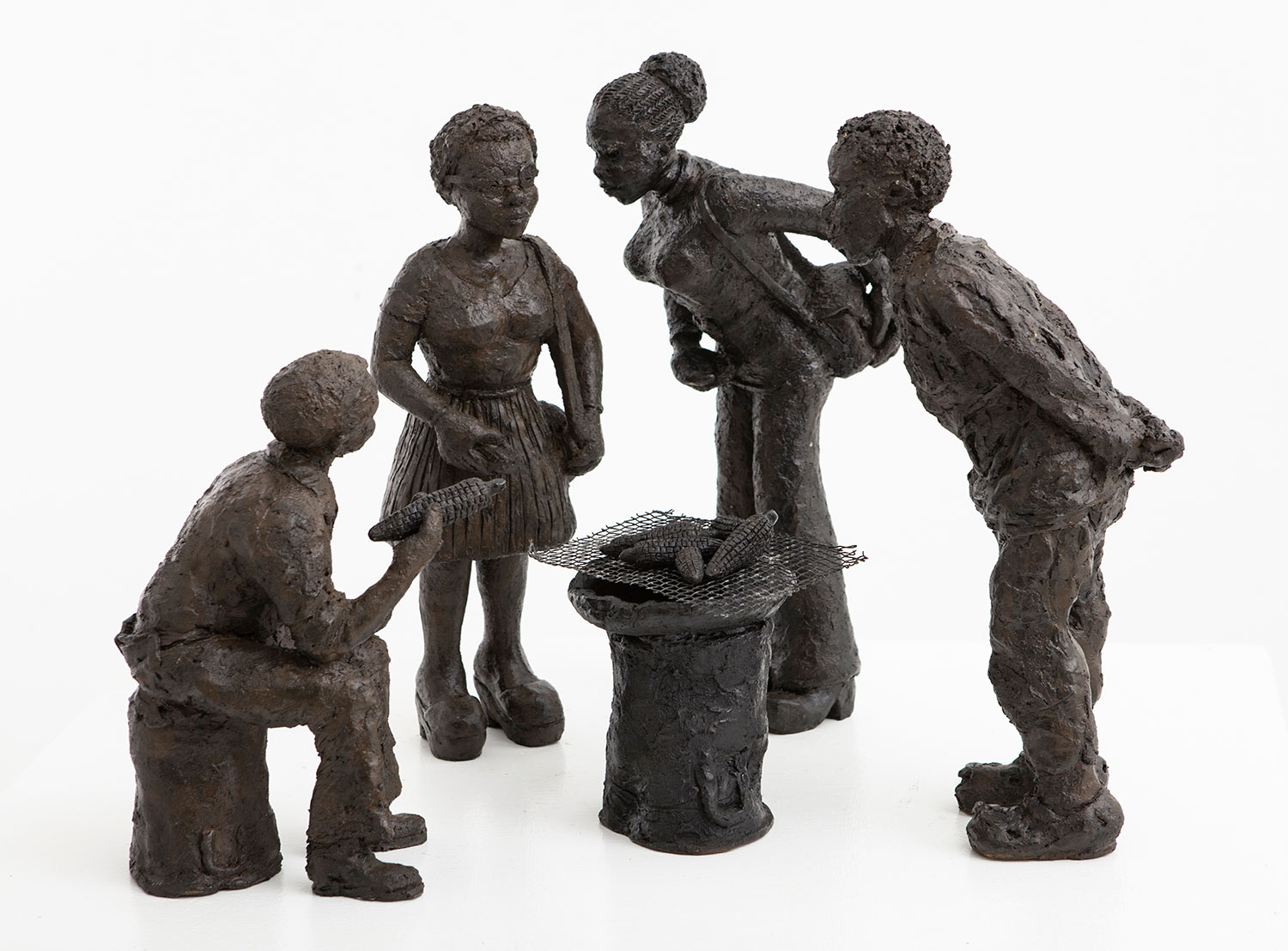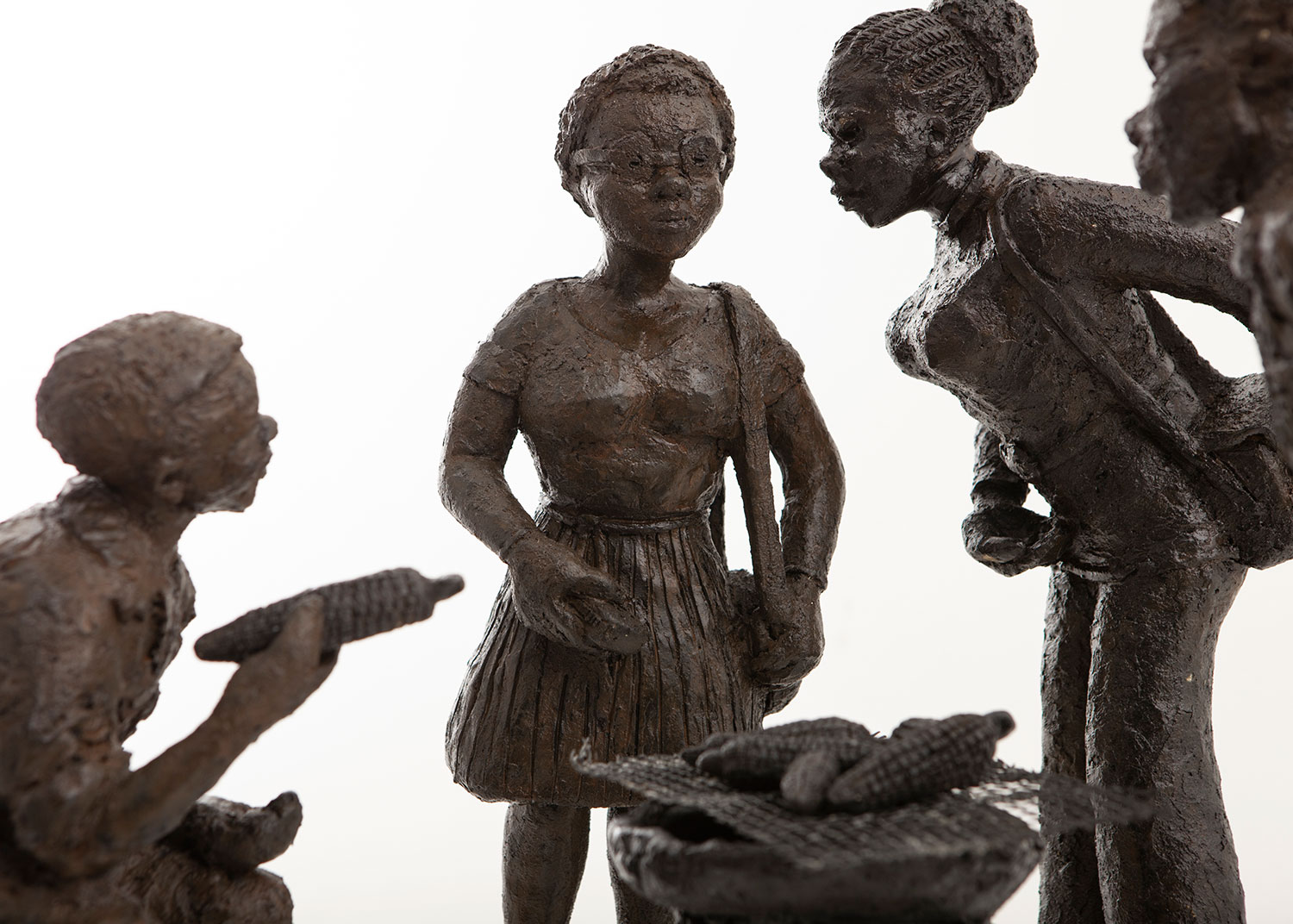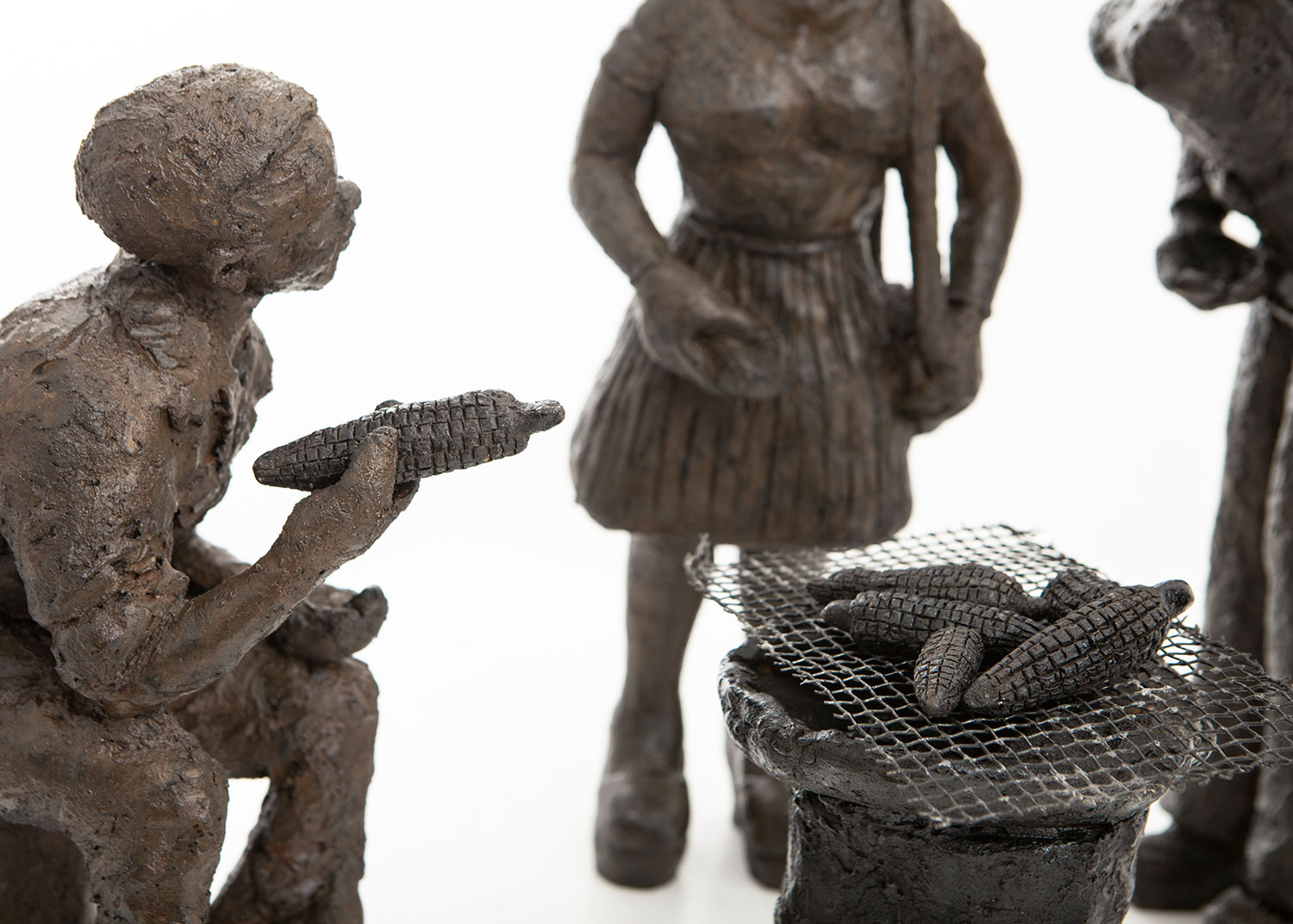Edward Njenga (Kenyan, born 1922)
Street Maize Roaster, 1975
Signed ‘ESN ‘75’ (base of maize seller piece)
Terracotta
55 x 65 x 43 cm (entire group)
Ksh 500,000 – 800,000
(US$) 4,800 – 7,800
Provenance: Direct from the artist
Sold Ksh 526,950
One of the figures (lady wearing glasses) has been restored by the artist; low to high estimates reflect this.
Edward Njenga is one of Kenya’s most revered sculptors with a career spanning almost six decades. Since 1962, Njenga has committed to capturing in clay, scenes from everyday life in Kenya. Njenga’s art is especially notable for his documentation of the social circumstances of Kenyans living in their capital city, Nairobi in the post-independence period. The fourth of seven children, Njenga was the only one to assist his mother who was a potter, as was his grandmother, and whilst he didn’t become a potter, the techniques he learned from her, formed the foundation for his future as a sculptor.
Njenga began his sculpting career in 1962, whilst working as a social worker in Nairobi. Encouraged by an acquaintance who worked as a draughtsman at the University of Nairobi and noticed his technical skill, Njenga continued to make work and had his first exhibition of nine pieces in 1970 at the New Stanley Gallery. He had further successful exhibitions; at Paa Ya Paa Gallery in 1968, at the invitation of fellow artist Elimo Njau and at Gallery Africa in 1970 which was opened by Attorney General Charles Njonjo, and which was a great success, earning him a scholarship to study in Germany at Hanover University from 1971-1973. Exhibitions in the U.S.A followed in the 70s in Washington and New York. Throughout his time in Germany and upon his return to Kenya, Njenga has received extensive coverage in the press in print and on TV.
Throughout his career, Njenga’s sculptures have documented experiences drawn from his personal life, as well as stories witnessed in his work as a social worker; a notable example of this is Mau Mau Detention Camp (1970), a tableau featuring multiple characters drawn from his time spent as a detainee during the state of emergency. Street Maize Roaster (1975), for example features a group of people in conversation, gathered around a roadside maize seller, perhaps on their way home from work, catching up on the day’s events. Such are the narratives that have enlivened Njenga’s work through the years. A major retrospective of his work, featuring over 200 pieces, was held at the National Museum in Nairobi in 2014; and Telling it in Clay, a biography by Lynnette Kariuki was published in 2015. Njenga’s works feature in many important private and public collections worldwide.




